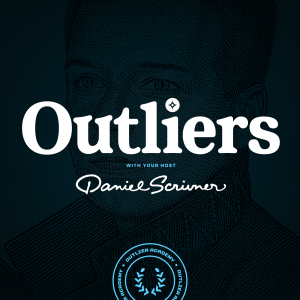
Trailer: #171 Investor Letter Breakdown: “The Anxieties of Business Change” by Warren Buffett | Outliers with Daniel Scrivner
 2023-10-02
2023-10-02
In 1985, Warren Buffett had to make an incredibly difficult decision. Which was whether to shut down the textile business Berkshire Hathaway — the original business Warren acquired, which was where Berkshire Hathaway got it's name.
In today's episode, I break down that decision and why the ultimately closed the business with a summary of Warren Buffett's Annual Letter from 1985.
Why cover this?
Because it's a fascinating look at how Warren went about making a phenomenally challenging decision — one that was close to his own heart. And I think it offers a lot of insight into how we can all go about analyzing and ultimately making difficult decisions in our own work and lives.
Here's a quick excerpt of that letter:
Over the years, we had the option of making large capital expenditures and the textile operation that would have allowed us to somewhat reduce variable costs.
Each proposal to do so looked like an immediate winner. Measured by standard return on investment tests, in fact, these proposals usually promised greater economic benefits than would have resulted from comparable expenditures in our highly profitable candy and newspaper businesses.
But the promised benefits from these textile investments were illusory.
Many of our competitors, both domestic and foreign, were stepping up to the same kind of expenditures. And once enough companies did so, their reduced costs became the baseline for reduced prices industry-wide.
Viewed individually, each company's capital investment decisions appeared cost-effective and rational. Viewed collectively, the decisions neutralized each other and were irrational, just as happens when each person watching a parade decides he can see a little better if he stands on tiptoes.
After each round of investment, all the players had more money in the game and returns remained anemic. Thus we faced a miserable choice.
Huge capital investment would have helped to keep our textile business alive, but would have left us with terrible returns on our ever-growing amounts of capital. After the investment, moreover, the foreign competition would still have retained a major continuing advantage in labor costs.
A refusal to invest, however, would make us increasingly non-competitive, even measured against domestic textile manufacturers.
I always thought myself in the position described by Woody Allen in one of his movies. "More than any other time in history, mankind faces a crossroads. One path leads to despair and utter hopelessness, the other to total extinction." Let us pray we have the wisdom to choose correctly.
Learn more about your ad choices. Visit megaphone.fm/adchoices
More Episodes
Create your
podcast in
minutes
- Full-featured podcast site
- Unlimited storage and bandwidth
- Comprehensive podcast stats
- Distribute to Apple Podcasts, Spotify, and more
- Make money with your podcast
It is Free
- Privacy Policy
- Cookie Policy
- Terms of Use
- Consent Preferences
- Copyright © 2015-2024 Podbean.com






